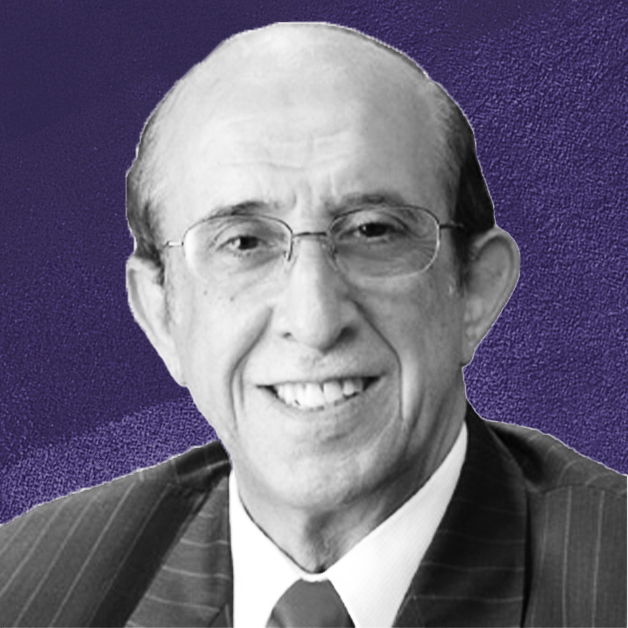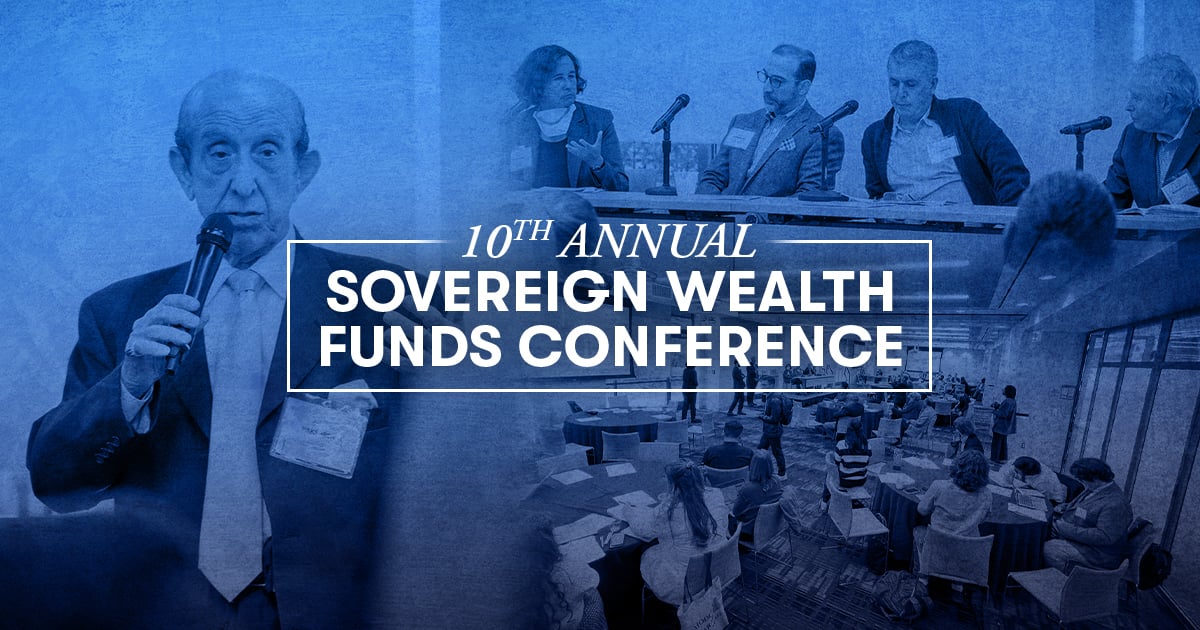
Darby Joyce
Content Marketing Coordinator
The Kogod School of Business’s annual Sovereign Wealth Funds conference reached a milestone this year as it celebrated its tenth anniversary and became the longest-running conference on the topic in the United States. Organized by Kogod professors of finance Ghiyath Nakshbendi and Jeff Harris and supported by the Embassy of Qatar and Saudi Arabia’s HRH Prince Abdulaziz bin Talal Al Saud, the conference convenes each year to discuss trends in sovereign wealth funds and how they relate to current events. With event support from Kogod students and introductions from Dean David Marchick and Senior Associate Dean Parthiban David, the school community came together to make the conference successful while learning more about these topics.
His Excellency Ahmad M. Al-Sayed, Minister of State and chairman of the Qatar Free Zones Authority Board of Directors, defined sovereign wealth funds (SWFs) as state-owned investment funds that manage a country’s reserves and are typically tied to natural resources such as oil or minerals. They are designed to support a nation’s financial goals and can be used to make investments and stabilize the economy as needed. At present, sovereign wealth funds manage nearly twelve trillion dollars of assets globally and are particularly prominent in Asia and the Middle East. With so much money involved, these funds have massive global implications, and the conference brought together academics, financial experts, and members of governments and royal families to address changes and challenges from the past year.
This year’s conference spotlighted sustainability initiatives, inflation, and rising interest rates. In his opening remarks, Professor Nakshbendi noted a trend towards sustainable investing, with China no longer investing in oil and Qatar and Saudi Arabia taking an interest in green bonds. Many countries with sizable sovereign wealth funds, such as Norway and China, are also committed to carbon neutrality, and these funds could potentially be used to invest in efforts to get closer to that goal.
There is real, serious movement towards supporting sustainability efforts across the world. The leaders–the fifteen largest sovereign wealth funds–are doing their best in order to achieve that.”

Ghiyath Nakshbendi
Professor of Finance, Kogod School of Business
In his keynote remarks, international lawyer Jonathan D. Cahn elaborated on the possibilities of harnessing sovereign wealth funds for good. A self-described optimist, Cahn is enthusiastic about the possibility of utilizing these funds to conduct ESG screenings, invest in renewable energy, and align national goals with international sustainability standards. More importantly, he explained, nations are now held to standards that they weren’t previously.
“The world expects sovereign wealth funds to play a leading role in addressing the climate crisis,” he said. As the general public becomes more informed on the consequences of climate change, there’s more of a push for their governments to take action, whether it’s divesting from fossil fuels or putting money towards carbon neutrality efforts.
A later panel discussion echoed the sentiment of sovereign wealth funds’ potential uses moving forward. Kogod professor of finance Tim Timura, Clarewood University president Richard Linowes, and US-Qatar Business Council managing director Mohammed Barakat discussed current considerations regarding SWFs, possible future trends, and current challenges. Barakat, who recently completed visits to several SWF sites, explained that some funds struggle with receiving outside advice, as said advice can be relevant to the fund itself without considering the equally important macroeconomic context. However, the three panelists see opportunities for further collaboration between sovereign wealth funds, which in turn can lead to new leadership roles and co-investing. Professor Timura shared Cahn’s optimism about the potential of sovereign wealth funds to be a major player in a nation’s growth and beyond.
I believe sovereign wealth funds have the ability to invest in their countries, in their regions, in their geographies, and they are going to be able to make investments in infrastructure, healthcare, education, and sustainable development.”

Tim Timura
Professor of Finance, Kogod School of Business
Shifting gears, Bill Megginson of the University of Oklahoma spoke of the strong and evolving relationship between sovereign wealth funds and private equity. SWFs are among the largest investors in private companies, which tend to be a safer and more profitable investment. With sovereign wealth funds and private capital both continuing to grow drastically, Megginson predicts that the connection between the two will only strengthen.
“Private equity investing is now larger than any type of investment that sovereign wealth funds make, except for fixed income,” he explained. “We’ve seen a major reallocation of investment by sovereign wealth funds towards private equity.”
Between a focus on sustainability and the growth of private equity, how should sovereign wealth funds develop their goals in the years to come? Professor of finance Catalin Stefanescu discussed their options in a panel with economics professor John Willoughby from American University’s College of Arts and Sciences and All Compliance Service CEO Kareem Nakshbendi. The panel was divided on how effective sovereign wealth funds can be in promoting ESG initiatives; while Kareem Nakshbendi is a firm believer in their ability to do so, Willoughby is more skeptical about whether they are properly incentivized, explaining that SWFs tend to be motivated by short-term political goals and long-term investment goals. To balance the two, Stefanescu offered the opinion that sovereign wealth funds should look towards their governments for guidance.
The priorities of sovereign wealth funds should be the ones mandated by their governments. They should be focused on helping develop their infrastructure or their economy.”

Catalin Stefanescu
Professor of Finance, Kogod School of Business
“When you go to these funds’ websites, they’re all talking about sustainable development–they understand that their economies need to develop in a very sustainable way,” Stefanescu said.
It’s clear that experts in sovereign wealth funds have plenty to consider between now and next year’s conference. As Professor Harris remarked in his closing comments, investing is already a risky process without adding the geopolitical considerations that sovereign wealth funds deal with. However, these funds are also in a unique position to support startups and other ventures that reflect their national and global priorities.
“There’s a notion that sovereign wealth funds can do more than just use their money as an influencer,” Harris said. “We can put funds into the management of companies–developing companies from the ground up for the benefit of our society.”
